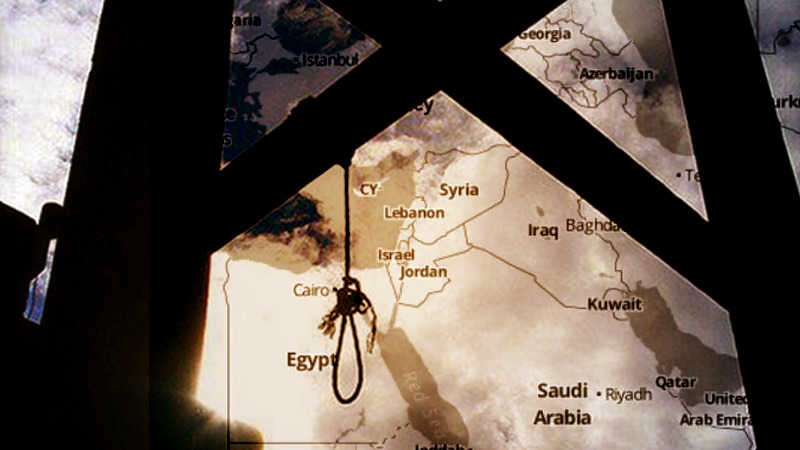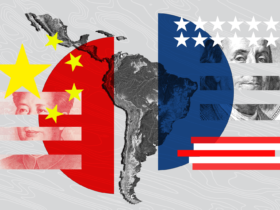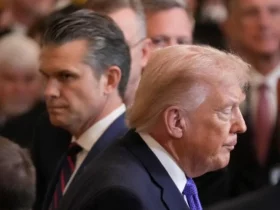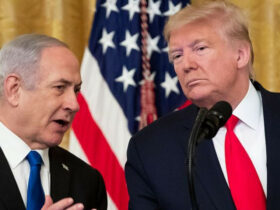After June 8, 2014, when General Abdel Fattah Al Sisi came to power in Egypt, displacing President Morsi (who was elected by popular vote), a total of 42 people were executed in Egypt. Turkey strongly condemns the practice of capital punishment, while European countries continue not to express any concrete position on the issue, with the exception of the individual statements of a few Western leaders. These statements turned out to be insufficient to stop el-Sisi’s government from resorting to capital punishment. Last week, another 6 young people were sentenced to death.
50 prisoners are currently awaiting the death penalty in Egypt. According to Egyptian law, only the President has the authority to sign a decree to execute defendants whose guilt has been proven, he is also the only one who can grant amnesty or reduce the severity of punishment.
The leaders of European countries, for the most part, turn a blind eye to the executions in Egypt, even meeting with e-Sisi at various summits and taking pictures with him hand in hand.
Unlike the EU and much of its leadership, the UN and numerous international human rights organizations have called for an end to the death penalty globally.
MERKEL, MAY AND MACRON – HAND IN HAND WITH EL-SISI
The EU was represented at the recent EU-League of Arab States (LAS) summit in Egypt at the highest levels – European Council President Donald Tusk, EU Head of European Diplomacy Federica Mogherini, German Chancellor Angela Merkel, British Prime Minister Teresa May and Italian Prime Minister Giuseppe Conte attended the event. France and Spain were represented at the ministerial meeting.
The president of France, a country often recognized as the “cradle of democracy,” visited Egypt on the eve of the summit. In an informal and friendly atmosphere, he too met with putsch leader el-Sisi.
EP Vice President Pavel Telichka, in response to a question about the EU’s failure to comment on the 9 young people facing the death penalty, admitted: “Yes, one can say that the EU sometimes behaves two-faced. We are not perfect. ”
ERDOGAN: DOUBLE EUROPE
Turkish President Recep Tayyip Erdoğan, who often critiques the use of the death penalty, severely criticized European countries for their silence on this serious problem. Discussing the summit in Egypt, Erdoğan said: “Can we talk about democracy in EU member states that took part in the summit organized by el-Sisi, when last week he signed a decree on the death penalty for 9 young people? Pointing out the duplicity of the EU’s position, the Turkish president stressed: “You do not approve of the death penalty, but take pictures with el-Sisi, who executed 42 people in Egypt.”
The Turkish President’s spokesman Ibrahim Kalyn also sharply criticized the summit. On his Twitter account, he posted photos of the nine executed Egyptians and wrote: “Nine young people executed by the el-Sisi regime, in front of which the countries of the West and the Persian Gulf spread the red carpet. All of you are complicit in this crime. ”
UN: STOP THE EXECUTIONS
The UN has appealed to the Egyptian government to put an end to the death penalty in the country. “We urge the Egyptian authorities to stop the execution of all death penalties. Information about torture during the trial was not properly investigated and studied, ” UN Human Rights Office Spokesperson Rupert Colville said in an address to el-Sisi’s government.
CALL FROM AMNESTY INTERNATIONAL
The international non-governmental organization Amnesty International also called for an end to the death penalty in Egypt.
Their statement notes that convicts are currently held in prisons pending execution, some of the defendants being accused of crimes that they did not commit and that the trials themselves are being conducted in violations of legal norms.
In addition, the statement stresses that during the trials “torture is used against defendants in order to force them to confess guilt”.

A Social media campaign has been launched in support of those sentenced to death in Egypt with the hashtag #StopExecutionsInEgypt
CONFERENCE AGAINST THE DEATH PENALTY
A press conference was held as part of the 7th World Congress against the Death Penalty, organized at the EP headquarters in Brussels, which was attended by Belgian Foreign Minister Didier Reynders, EP president Pavel Telička and several people who were sentenced to death but acquitted.
Anadolu`s correspondent asked, “How do you assess the participation of EU countries at the summit in Sharm el-Sheikh after the death penalty of 9 convicts in Egypt, and the refusal of European leaders to make an official statement on this? Will this question be raised at a meeting of the Congress? ” Reynders answered that the EP maintains contacts with the Egyptian authorities.
Reynders noted that negotiations are held with officials in Cairo not only on the issue of the death penalty but also on the conditions of detention. According to him, this issue is also being discussed with other international organizations. “During negotiations with the Egyptian authorities, we condemned the practice of the death penalty and insisted on its termination. We are closely following the situation with the conditions of prisoners and the death sentences of convicts, ”he said. He also spoke about a UN initiative to confront the issue.
Telička said that during the negotiations with the Egyptian minister, he announced his intention to make a visit to Egypt to study the human rights situation and prison conditions in the country, but did not get Cairo’s consent.
“We are not international police and are not obligated to punish those responsible,” he added.
The International Congress on Counteracting the Death Penalty was first held in Strasbourg in 1991.

















Leave a Reply